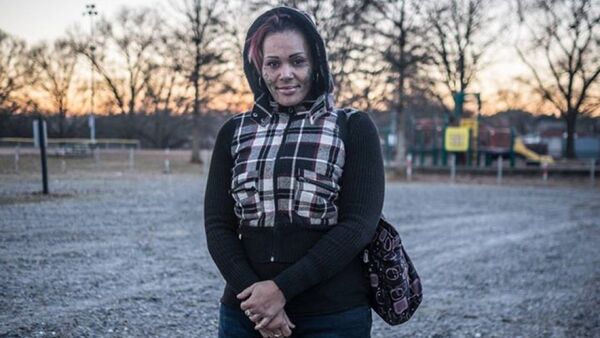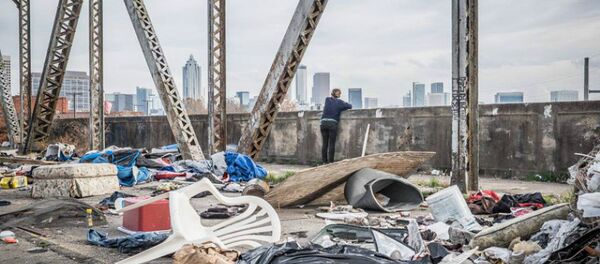Ekaterina Blinova — Brent Walker, an independent American photojournalist, and The Hidden South project author, published the story of a young woman who spent her childhood in the DFCS treatment facilities in Atlanta, GA, exposing a blistering nationwide problem.
"I went into DFCS custody when I was five and I didn't get out until a few days before my 18th birthday. When they released me from custody, they put me in handcuffs and called the police," says Jennifer, sharing painful experience of her childhood in the DFCS system (the Department of Family and Children Service, also known as DCFS) in Georgia.
The woman said that she was deeply affected by abuse and brutality she faced in a number of DFCS facilities, where kids' rights were violated by the staff. What made the matters worse, the staff members knew they would never get punished for what they did to wards at the residential treatment facilities.
Among measures, practiced by the adults, were harsh physical restraining, placing kids in empty, jail cells-styled "behavior control room," or injecting children with Thorazine or Vistaril, anti-psychotic drugs, typically used for treating schizophrenia. "If you're too out of control then they give you a high dosage and you’ll be knocked out within 10-15 minutes," Jennifer recalls.
"It's abuse…What if a parent did that to their child inside of a home? They'd be locked up," she emphasized.
Indeed, the problem of widespread violation of human rights of American wards in the DFCS facilities across the United States remains a blistering issue in the country. In October 2007, the Government Accountability Office (GOA), an independent agency that provides audit and investigative services to the United States Congress, reported of "thousands of allegations of abuse, some of which involved death, at residential treatment programs across the country and in American-owned and American-operated facilities abroad between the years 1990 and 2007." The residential treatment programs were developed for rehabilitation of troubled boys and girls. However, the investigators found out that "during 2005 alone, 33 states reported 1,619 staff members involved in incidents of abuse."
In December 2014, Medill Watchdog, a US-based independent institution, revealed that regardless of GOA's warnings, the mistreatment and violence inside residential treatment centers across the United States continued, while DFCS officials had been turning a blind eye to the problem over the decades. Citing police and state records, the watchdog pointed to around 5,000 runaway cases registered in 130 facilities in 11 states since 2011, as well as hundreds of rape, sexual abuse and physical assault incidents. Furthermore, many of those who fled from treatment facilities were later involved in different crimes, or fell victims of trafficking and sexual abuse. Moreover, independent observers expose numerous cases when youths were drawn into prostitution while living at residential centers.
American children rights advocates are beating drums, slamming the DFCS system for inefficiency and negligence. Over the decades the DFCS has been wasting millions of taxpayer money annually, failing to provide American youths with a "safe haven" at residential centers. Statistics indicate that about 40 percent of wards discharged from the centers later face prison charges or are being placed in psychiatric hospitals.



